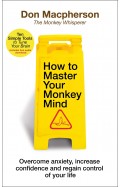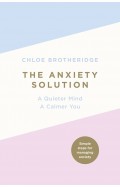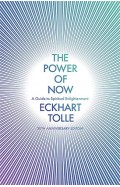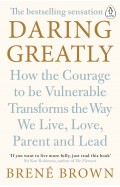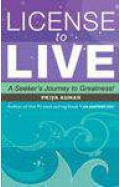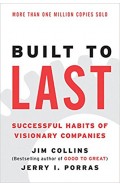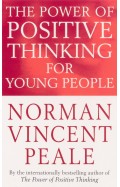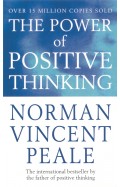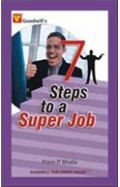- Home
- Brand
- Awesome Brand
- Unfuck Your Brain: Using Science To Get Over Anxiety, Depression, Anger, Freak-Outs, and Triggers (5-Minute Therapy)
Unfuck Your Brain: Using Science To Get Over Anxiety, Depression, Anger, Freak-Outs, and Triggers (5-Minute Therapy)
By: Faith Harper
-
Rs 4,670.75
- Rs 5,495.00
- 15%
You save Rs 824.25.
Due to constant currency fluctuation, prices are subject to change with or without notice.
A no-nonsense and helpful guide on how to cope with a slew of mental-health issues that are hellbent on ruining the lives of millions of people worldwide.
Our brains do their best to help us out, but every so often they can be real assholes―having melt downs, getting addicted to things, or shutting down completely at the worst possible moments. Your brain knows it’s not good to do these things, but it can’t help it sometimes―especially if it’s obsessing about trauma it can’t overcome. That’s where this life-changing book comes in.
With humor, patience, science, and lots of good-ole swearing, Dr. Faith explains what’s going on in your skull, and talks you through the process of retraining your brain to respond appropriately to the non-emergencies of everyday life, and to deal effectively with old, or newly acquired, traumas (particularly post-traumatic stress disorder).
A no-nonsense and helpful guide on how to cope with a slew of mental-health issues that are hellbent on ruining the lives of millions of people worldwide.
Our brains do their best to help us out, but every so often they can be real assholes―having melt downs, getting addicted to things, or shutting down completely at the worst possible moments. Your brain knows it’s not good to do these things, but it can’t help it sometimes―especially if it’s obsessing about trauma it can’t overcome. That’s where this life-changing book comes in.
With humor, patience, science, and lots of good-ole swearing, Dr. Faith explains what’s going on in your skull, and talks you through the process of retraining your brain to respond appropriately to the non-emergencies of everyday life, and to deal effectively with old, or newly acquired, traumas (particularly post-traumatic stress disorder).
Unfuck Your Brain: Using Science To Get Over Anxiety, Depression, Anger, Freak-Outs, and Triggers (5-Minute Therapy)
By: Faith Harper
Rs 4,670.75 Rs 5,495.00 Ex Tax :Rs 4,670.75
Zubin Mehta: A Musical Journey (An Authorized Biography)
By: VOID - Bakhtiar K. Dadabhoy
Rs 892.50 Rs 1,050.00 Ex Tax :Rs 892.50
How to Master Your Monkey Mind : Overcome anxiety, increase confidence and regain control of your life
By: Don MacPherson
Rs 3,415.50 Rs 3,795.00 Ex Tax :Rs 3,415.50
The Anxiety Solution - A Quieter Mind a Calmer You
By: Chloe Brotheridge
Rs 2,965.50 Rs 3,295.00 Ex Tax :Rs 2,965.50
Unshakeable Your guide to Financial Freedom
By: Tony Robbins
Rs 3,565.75 Rs 4,195.00 Ex Tax :Rs 3,565.75
Daring Greatly: How the Courage to Be Vulnerable Transforms the Way We Live, Love, Parent, and Lead
By: Brené Brown
Rs 2,515.50 Rs 2,795.00 Ex Tax :Rs 2,515.50
Built to Last Successful Habits Of Visionary CompaniesAI
By: James C. Collins
Rs 4,045.50 Rs 4,495.00 Ex Tax :Rs 4,045.50
Great Soul Mahatma Gandhi And His Struggle With India
By: Joseph Lelyveld
Rs 731.25 Rs 975.00 Ex Tax :Rs 731.25
The Power Of Positive Thinking For Young People
By: Norman Vincen Peale
Rs 2,245.50 Rs 2,495.00 Ex Tax :Rs 2,245.50
Get Real: How To Tell It Like It Is In A World of Illusions
By: Eliane Glaser
Rs 531.25 Rs 625.00 Ex Tax :Rs 531.25
How to Master Your Monkey Mind : Overcome anxiety, increase confidence and regain control of your life
By: Don MacPherson
Rs 3,415.50 Rs 3,795.00 Ex Tax :Rs 3,415.50
The Anxiety Solution - A Quieter Mind a Calmer You
By: Chloe Brotheridge
Rs 2,965.50 Rs 3,295.00 Ex Tax :Rs 2,965.50
Unshakeable Your guide to Financial Freedom
By: Tony Robbins
Rs 3,565.75 Rs 4,195.00 Ex Tax :Rs 3,565.75
Daring Greatly: How the Courage to Be Vulnerable Transforms the Way We Live, Love, Parent, and Lead
By: Brené Brown
Rs 2,515.50 Rs 2,795.00 Ex Tax :Rs 2,515.50
Zubin Mehta: A Musical Journey (An Authorized Biography)
By: VOID - Bakhtiar K. Dadabhoy
Rs 892.50 Rs 1,050.00 Ex Tax :Rs 892.50
Unfuck Your Brain: Using Science To Get Over Anxiety, Depression, Anger, Freak-Outs, and Triggers (5-Minute Therapy)
By: Faith Harper
Rs 4,670.75 Rs 5,495.00 Ex Tax :Rs 4,670.75
How to Master Your Monkey Mind : Overcome anxiety, increase confidence and regain control of your life
By: Don MacPherson
Rs 3,415.50 Rs 3,795.00 Ex Tax :Rs 3,415.50
The Anxiety Solution - A Quieter Mind a Calmer You
By: Chloe Brotheridge
Rs 2,965.50 Rs 3,295.00 Ex Tax :Rs 2,965.50
Unshakeable Your guide to Financial Freedom
By: Tony Robbins
Rs 3,565.75 Rs 4,195.00 Ex Tax :Rs 3,565.75
Daring Greatly: How the Courage to Be Vulnerable Transforms the Way We Live, Love, Parent, and Lead
By: Brené Brown
Rs 2,515.50 Rs 2,795.00 Ex Tax :Rs 2,515.50












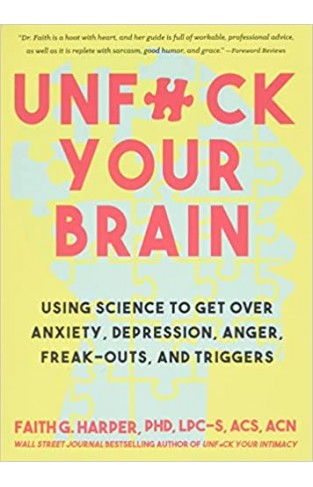

-120x187.jpg?q6)





